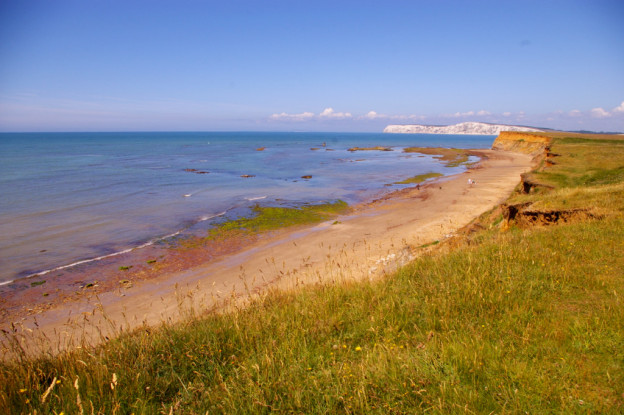Being an island is crucial to our national identity in Britain. The geography of our country has played a huge rule in defining the way we think today. To at least some extent our island status is surely responsible for the fact that most of us fall short of feeling European. We do not have the same mind set as the rest of the continent that we are supposed to be a part of. However, Britain wasn’t always an island.
After the Ice Age
Ancient Britain was actually a peninsula of the European continent until after the conclusion of the last ice age. During the Ice Age Britain was connected by land to the rest of Europe with the seas further north being ice. One area of what is now the North Sea was a huge landlocked lake into which the rivers of Europe Flowed. The water level of this lake was therefore rising as the land to the south formed a natural dam. As the ice melted at the end of the ice age sea water levels were also rising and gradually water began to surround Britain.
The Isolation
At some time around 6100BC it is thought that enormous landslides in Norway called the Storegga Slides triggered one the biggest tsunamis ever recorded on Earth. This event burst the banks of the aforementioned lake and a huge river flowed south carving a gash in the landscape. When the ice continued melting this depression filled with water permanently completing Britain’s isolation from Europe by forming the English Channel. Britain had been cut off from Europe several times previously at the end of the various ice ages but 6100BC was the last time that the country was connected to the rest of the continent. Perhaps one day the waters will recede once more.
The Surge
Until the surge people could walk from Britain to France but anyone caught doing this when the water arrived would have been completely overwhelmed as the speed of the surge was so great. The waves would have been as much as 10 metres high during the event.
The Isle of Wight
As Britain became an island, some portions of the territory became smaller islands off the coast. One of these was the Isle of Wight which was cut off from the rest of Britain because the post-glacial adjustment caused the land level to sink and the Solent flooded thus separating the Island from the mainland. Post glacial adjustment is a phenomenon which occurs after the ice melts. During an ice age the huge weight of the ice depresses the land. When the ice melts this land can begin to rise or depress as the earth recovers equilibrium. The Isle of Wight has proved important to historians in unravelling the history of the nation as many relics of pre-island times have been recovered from seas off the coast and have helped to reveal the story of what happened. Britain is both an island nation and a nation of islands!
Article by Sally Stacey

